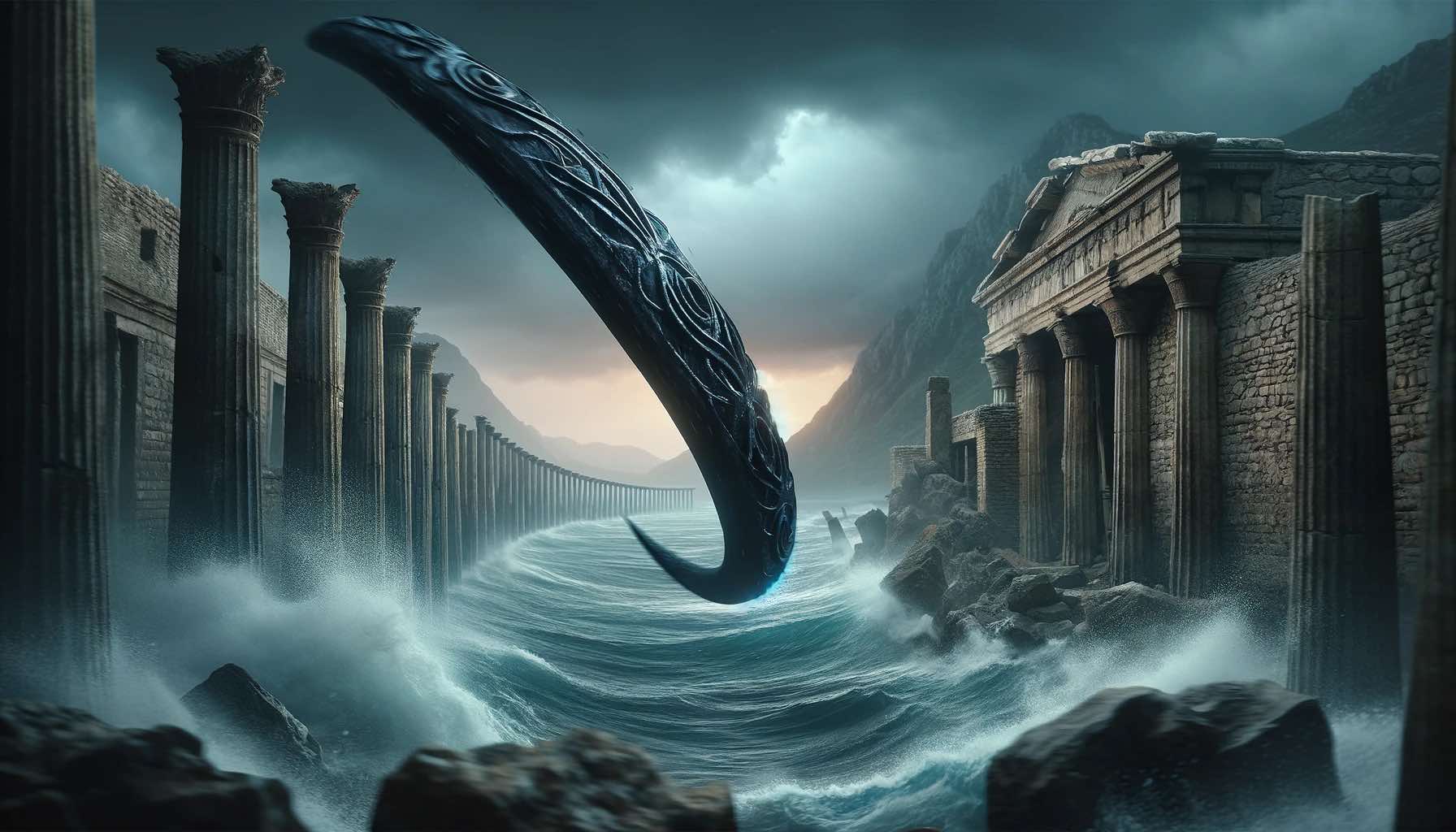
The imperial boomerang
- Martin Enlund
- 4/10/24
We have earlied pondered the likelihood of a financial event horizon (warning: Swedish) for the United States. Since then, little has improved, rather the opposite - at least gauging from the budget outcomes and national debt perspectives.
The US’ federal debt is now approaching 35 trillion dollars, equivalent to 124% of the country’s GDP or approximately $100,000 per citizen. Currently, the federal debt is increasing by around 1 trillion dollars every quarter. This federal debt reflects money already spent by the government.
But in addition to the federal debt, there are significantly larger commitments in the form of 1) government health insurance programs (Medicare and Medicaid), 2) social security system (support for retirees, people with disabilities, etc.), 3) the federal pension system, and 4) support for veterans. These commitments now total 215 trillion dollars or around $640,000 per citizen. Combining the national debt with these commitments, every American already owes about $740,000, even newborns. This already astronomical amount leaves out other contingent liabilities which may arise in the future.
Too many promises have been made
It seems fair to conclude that the US government has promised its citizens more than it will eventually be able to fulfill - at least without some form of deus ex machina. Perhaps, as Otto von Bismarck has allegedly said: “God looks after fools, drunkards, and the United States of America.” But what if God’s patience is running out? Then, sooner or later, we should expect significant austerity measures (e.g., putting the elderly out on the street), significantly higher tax burdens, or other more imaginative ways to get out of the fix. For a long time, a combination of regulations and monetary policies (“financial repression”) has been used in several countries to tap into citizens’ savings in an opaque manner. A continuation in this unethical spirit is the least one should expect.
Foucault’s Imperial Boomerang
It is biw worth noting that the French philosopher Michel Foucault has argued that the techniques and “political and legal weapons” used by old colonial powers in their colonies were eventually brought back to their respective countries in an imperial boomerang effect. Thus, these colonial techniques eventually became part of domestic practices. “The Empire’s boomerang” has been invoked to explain, among other things, the militarization of the American police. Here, I wanted to apply the boomerang concept to financial aspects.
The extraterritorial bullying boomeranged to Sweden
Regardless of it’s empire status, the US, together with the G7, established the intergovernmental organization FATF (Financial Action Task Force) in the summer of 1989. Initially aimed at combating organized crime and drug trafficking, after the 9/11 attacks, the organization shifted its focus to what critics call “extraterritorial bullying.” Two decades later, headlines like “Gunnar had 2.6 million in his bedroom - now the government burns it all” reveal a complete disregard for the presumption of innocence. The Swedish central bank is enthusiastically putting the torch to e.g. estate funds in part due to FATF regulations. The empire’s financial bullying of the global south had returned, not only to the United States but also to its small allied kingdom, Sweden.
Actions against Venezuela boomeranged to Canadian Truckers
In 2020, the US and the UK froze parts of Venezuela’s gold reserves and since then have prevented the country from selling its gold. A couple of years later, another Anglo-Saxon country, Canada, froze bank accounts of people participating in peaceful protests against the country’s stringent pandemic policies (“Freedom Convoy”), not only targeting truck drivers but also those “associated” with the protests. No reasonable suspicion was required. Earlier this year, a federal judge ruled that the government’s actions were unlawful. The case will be appealed to Canada’s Supreme Court. The empire’s boomerang - freezing Venezuela’s gold reserves - had returned again, not to the United States but now to the Canadian territory under the British crown.
Will the West steal Russia’s assets?
Just over two years ago, Russian assets worth about 300 billion dollars were frozen by the USA and its allies in a shot heard round the world. Today, Russia’s central bank sees no alternative but to use China’s yuan in its reserves. Zbigniew Brzezinski’s warning of an “anti-hegemonic coalition” where China, Russia, and Iran align in a “dangerous scenario” (for the US) has materialized.
Earlier this year, US Treasury Secretary Janet Yellen stated that she believes “it is necessary and urgent (…) to find a way to unlock the value in those [Russia’s] immobilized assets …” and that she believes “there is a strong internationally legal, economic, and moral basis for moving forward.” While this may be true, it could be argued that prioritizing intent over law is inappropriate as it disregards the foundation of the rule of law. Clause 39 of the Magna Carta stipulates that “[n]o free man shall be seized or imprisoned, or stripped of his rights or possessions (…) except by the lawful judgment of his equals or by the law of the land.” Before assuming that principles of the rule of law do not apply in times of war, it is worth noting that the US is not formally at war with Russia.
Who decides what’s “necessary and urgent”?
When the US Treasury Secretary appears to want to disregard the principles of the rule of law and seize Russian assets because it is “necessary and urgent,” there are certainly many who would cheer her on. However, upon further contemplation, one realizes that if she can confiscate Russian assets by claiming it is “necessary and urgent,” then any assets could be seized under similar pretenses.
As the introduction suggested, the US’s financial situation is becoming increasingly “urgent”, and the likelihood of something soon becoming “necessary” cannot be ruled out. If the Treasury Secretary gets her way in the case of Russia, it might be best to prepare to hunker down when the empire’s boomerang eventually returns home.
If you wish to subscribe, sign up here!
Cover image created with Dall-E


